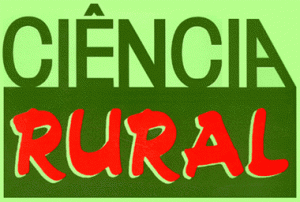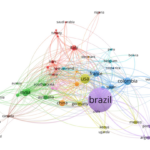By Daniela Isabel Brayer Pereira, Departamento de Microbiologia e Parasitologia, Universidade Federal de Pelotas (UFPel), Pelotas, RS, Brazil
The research “Effect of anaerobic bovine colostrum fermentation on bacteria growth inhibition” published in Ciência Rural Journal, volume 46, number 12 in 2016, aimed to evaluate the bactericidal effect of the colostrum anaerobic fermentation process on bacterial pathogens of interest to animal health. For this, the researchers inoculated aliquots of colostrum with cultures of Bacillus cereus, Brucella abortus (B-19), Escherichia coli, Leptospira icterohaemorrhagiae, Mycobacterium bovis (BCG), Salmonella enteritidis, Salmonella typhimurium and Staphylococcus aureus and, after, submitted them to the anaerobic fermentation process. The researchers cultured and submitted samples to counting of colony forming units (CFU / mL) on day zero and every seven days to 30 days of fermentation. After seven days of fermentation of colostrum, the researchers did not detect CFU/mL on B. abortus, L. icterohaemorrhagiae and M. bovis (BCG) in silage of colostrum. The same fact was evidenced with the bacteria E. coli, S. aureus, S. Enteritidis and S. typhimurium after 14 days of fermentation colostrum.
At the end of the evaluation period (30 days) only the rate of fermented colostrum inoculated with B. cereus showed colony count. The researchers found an increase in colony counts of lactic acid bacteria (LAB) in the control sample. These results enabled researchers to conclude that the colostrum anaerobic fermentation process is able to inhibit the growth of pathogenic nonsporulating bacteria.
According to the researcher Daniela Isabel Brayer Pereira, the study results show that the product silage of colostrum can be used with microbiological safety in animal feed. “In addition, this product is cheap, easy to produce and store and does not require the use of additives or special equipment for their preparation, being feasible to use in animal feed,” she adds. Although the fermentation of colostrum prevent the proliferation of bacteria, Daniela points out that it is essential that producers maintain attention to hygiene and sanitation of milking herds to minimize bacterial contamination other factors during harvesting and storage of colostrum.
The research innovates by proposing a simple and low cost of silage colostrum production that can be done by farmers themselves. There are similar studies that evaluate different methods of preservation of colostrum for use in animal feed. However, according to the researcher, this is the first to assess the microbiological safety of the anaerobically fermented colostrum.
To read the article, access it
SAALFELD, M.H., et al. Effect of anaerobic bovine colostrum fermentation on bacteria growth inhibition. Cienc. Rural. 2016, vol. 46, nº 12, p. 2152-2157. [viewed 16th November 2016]. ISSN: 1678-4596. DOI: 10.1590/0103-8478cr20160393. Available from: http://ref.scielo.org/x7b84r
External link
Ciência Rural – CR: <http://www.scielo.br/cr>
Como citar este post [ISO 690/2010]:



















Recent Comments